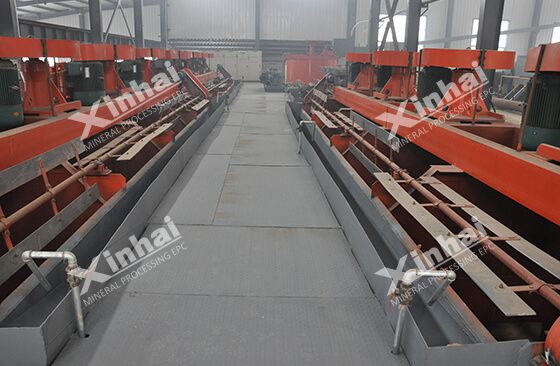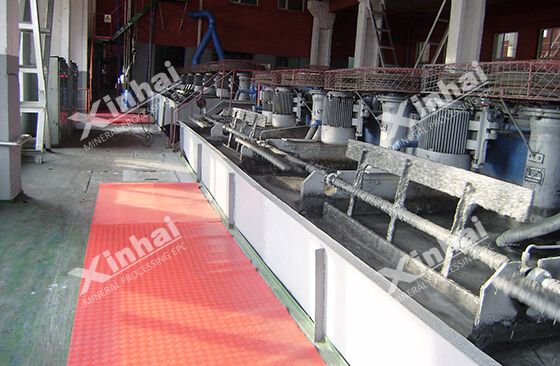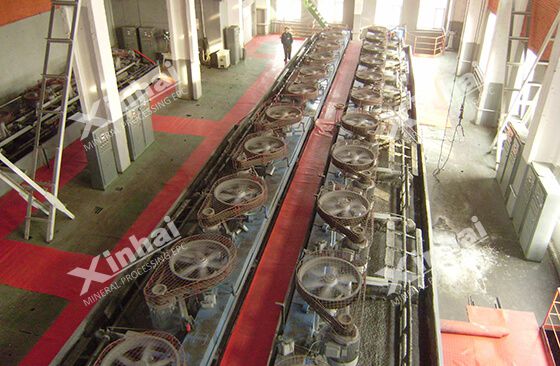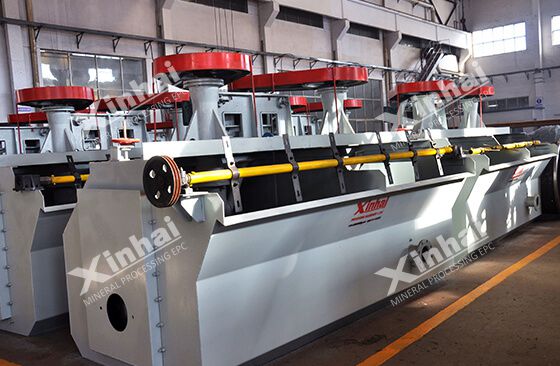
The common lead-zinc sulfide ore in nature is mainly a lead-zinc sulfide poly-metallic ore, often accompanied by a variety of valuable components, such as lead, zinc, copper, sulfur, and other useful minerals. Due to the difference in floatability of different minerals, the lead-zinc ore flotation process of mineral beneficiation is also different.
Common lead-zinc ore flotation processes include selective flotation process, bulk flotation process, ISO-flotation process, branch flotation process, and potential-controlled flotation process.

The selective flotation process is applicable to enriched ores with simple mineral composition, high grade of lead & zinc ores, and coarse grains.
Advantages: the production process is easy to control, the quality of the Pb-Zn concentrate is high, and the fluctuation of the flotation index is small.
The lead-zinc selective flotation process is to suppress zinc first, then float lead, and finally activate zinc to obtain lead and zinc concentrates respectively.

The bulk flotation process is suitable for the beneficiation of lead-zinc ore which the difference in floatability is small and the low-grade useful minerals are closely associated.
The lead-zinc sulfide ore bulk flotation process is to get the lead-zinc bulk concentrate first, then separate single zinc and lead concentrate after the concentrate was de-reagents.
The iso-float process has both the characteristics of bulk flotation process and selective flotation.
The lead-zinc sulfide ore Iso-flotation process is to divide lead-zinc sulfide into easy-to-float and difficult-to-float two parts and then proceed to the bulk flotation process.

The branch flotation process prioritizes the floatable lead-zinc ore with high flotation velocity and the difficult-to-float lead-zinc mineral with slow flotation velocity.
Advantages: While obtaining good flotation indexes, it can reduce the volume of the flotation machine, metal circulation, and metal loss, and chemical consumption, and simplify the process.
The essence of potential-controlled flotation is to control the progress and direction of the oxidation-reduction reaction on the surface of the sulfide mineral by changing the electrochemical conditions. The process can affect the surface state of the sulfide ore, the collector's product form, and stability on the surface of the sulfide ore. It can also increase the hydrophilic-hydrophobic properties of the surface of the sulfide ore so that the sulfide ore can be separated by the selective flotation process.
The potential-controlled flotation process has the advantages of less dosage, simple formula, less environmental pollution, and high selectivity. It is especially suitable for the classification of low-grade lead-zinc sulfide ores.

The selection of the lead-zinc ore flotation process will directly affect the flotation result and mineral recovery rate. It is recommended that each miner formulate a scientific and reasonable flotation process based on the ore dressing test report to avoid unnecessary economic losses. Xinhai is an expert in this area, please contact us if you need it.
To find out more about our products and solutions, please fill out the form below and one of our experts will get back to you shortly.